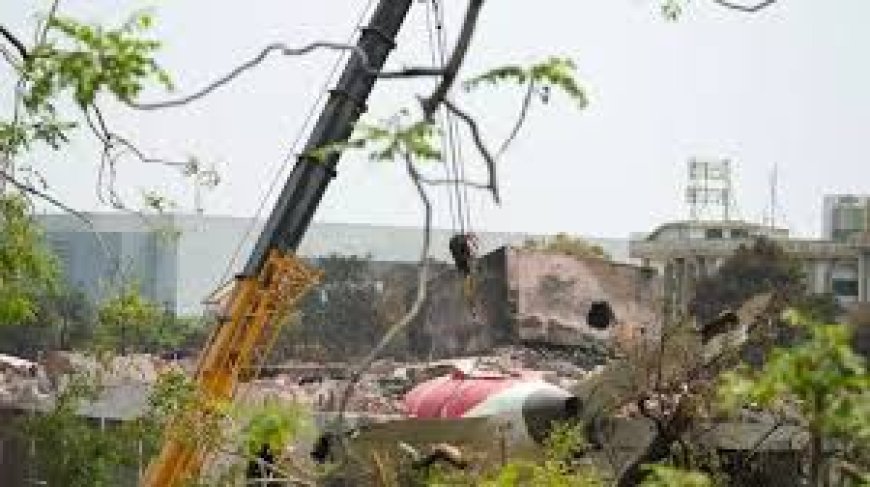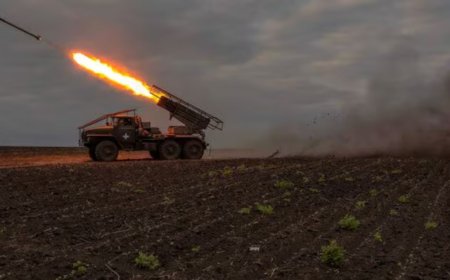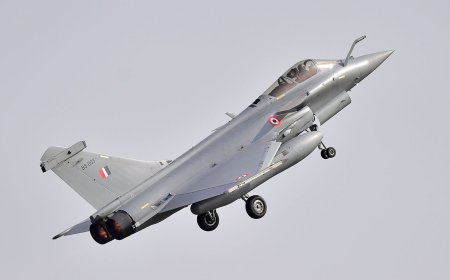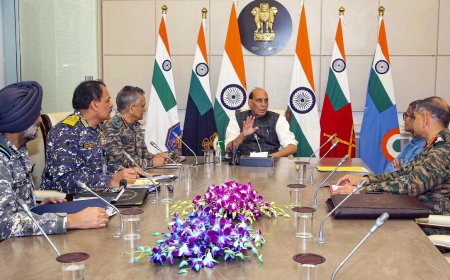Air India plane crash: Sabotage angle not ruled out; ground staff questioned, phones seized in multi-agency probe
Investigators suspect sabotage in the tragic Air India crash that killed 78. Ground staff are under scrutiny as agencies probe all angles, including insider threats.

June 18, 2025 | New Delhi – A multi-agency investigation has been launched into the tragic crash of an Air India aircraft that claimed the lives of 78 passengers and crew earlier this week. As the nation reels from the disaster, the possibility of sabotage is now a key focus of the probe, with ground staff at the originating airport being questioned and their electronic devices confiscated for forensic analysis.
Crash Details and Initial Findings
The Air India flight AI-268, operating on a scheduled route from Mumbai to Frankfurt, crashed shortly after takeoff on June 15, 2025. Eyewitnesses reported hearing a loud explosion mid-air followed by a steep descent. The aircraft, a Boeing 787 Dreamliner, crashed into a sparsely populated area near Nashik, Maharashtra. All 78 people onboard were confirmed dead.
Initial data from the Flight Data Recorder (FDR) and Cockpit Voice Recorder (CVR) recovered from the crash site indicates a sudden systems failure, followed by a loss of engine power and erratic communication between the cockpit and the Air Traffic Control (ATC). Investigators noted that the sequence of events does not align with standard mechanical failure, prompting further scrutiny.
Sabotage Not Ruled Out
A senior official from the Directorate General of Civil Aviation (DGCA) confirmed that while mechanical failure is still being considered, the possibility of deliberate interference or sabotage is also under review.
“We are not ruling out sabotage at this point. Evidence from preliminary investigations has raised serious concerns,” the official told The National Business Times on condition of anonymity.
Security footage and staff access logs from Mumbai’s Chhatrapati Shivaji Maharaj International Airport are being examined closely. Investigators are specifically focusing on the turnaround time prior to the flight, a window where ground support teams service the aircraft.
Multi-Agency Investigation Underway
The DGCA is collaborating with the Bureau of Civil Aviation Security (BCAS), Central Industrial Security Force (CISF), Intelligence Bureau (IB), and the National Investigation Agency (NIA). According to official sources, over a dozen ground staff have been detained for questioning. The mobile phones and other personal devices of key personnel have been seized and sent for forensic examination.
A joint statement from the Civil Aviation Ministry stated:
“Given the circumstances and emerging evidence, all angles are being thoroughly investigated, including internal and external security threats. We are committed to ensuring a fair and swift inquiry.”
Authorities are also working closely with Boeing representatives and international aviation safety experts to ensure transparency and technical integrity in the investigation.
Insider Threat and Cybersecurity Concerns
The crash has reignited debates around insider threats within the aviation sector. Cybersecurity experts have also raised concerns about potential vulnerabilities in aircraft systems.
Rohan Dutta, an aviation security analyst with Global AeroWatch, noted:
“Insider sabotage is a less frequent but highly dangerous threat. With modern aircraft being increasingly reliant on digital systems, the aviation industry must re-evaluate cybersecurity and staff vetting processes.”
Experts are calling for improved background checks, regular audits, and enhanced monitoring mechanisms for ground personnel.
Market Impact and Investor Sentiment
In the wake of the crash, shares of Air India’s parent company Tata Sons have witnessed volatility. Although Tata Sons is privately held, related aviation and travel sector stocks, including InterGlobe Aviation (IndiGo), SpiceJet, and global aerospace partners, saw an initial dip of 2–4% on the Bombay Stock Exchange (BSE) before stabilizing.
Market analysts believe the long-term impact will depend on the final findings of the investigation.
“The Indian aviation sector is extremely sensitive to safety concerns. If sabotage is confirmed, it could lead to tighter regulations and increased costs for airlines,” said Richa Maheshwari, Equity Analyst at Zenith Capital.
Investors are advised to maintain a cautious stance on aviation-related stocks until clarity emerges from the ongoing probe.
Public and Political Reaction
Public outrage is mounting, with demands for accountability and safety reassurances. Families of the victims have called for a judicial inquiry and stronger oversight on airline operations.
Opposition leaders have criticized the government’s aviation safety preparedness. Congress spokesperson Priya Thomas said:
“This incident raises serious questions about the preparedness of our civil aviation framework. A high-level independent inquiry is the need of the hour.”
In response, the Ministry of Civil Aviation has announced the formation of a Special Safety Review Task Force, which will submit its report within 30 days.
Looking Ahead: Safety and Reform
The Air India crash serves as a grim reminder of the fragility of aviation safety. As India’s aviation market continues to expand, regulatory bodies face pressure to modernize infrastructure and improve security protocols.
Industry experts believe this tragedy could serve as a catalyst for major reforms.
“It’s time for a paradigm shift in how we approach aviation safety and personnel vetting. This incident must trigger systemic change,” said Capt. Ramesh Iyer, retired Air India pilot and aviation safety consultant.
The next few weeks will be crucial as investigators piece together the cause of the disaster. Whether sabotage is ultimately confirmed or ruled out, the findings will shape the future of India’s aviation landscape.
What's Your Reaction?
 Like
0
Like
0
 Dislike
0
Dislike
0
 Love
0
Love
0
 Funny
0
Funny
0
 Angry
0
Angry
0
 Sad
0
Sad
0
 Wow
0
Wow
0












































































